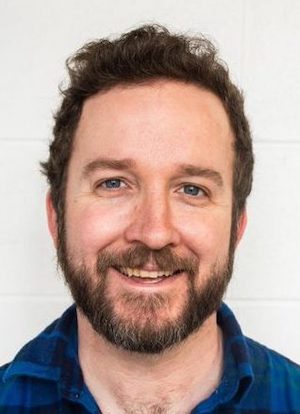How would you create an audio clip and include it in an essay – or why would you even want to?
Students across all disciplines at York University are invited to elevate their knowledge of multimodal and digital writing through a new series of workshops offered at The Writing Centre, beginning Feb. 5.
With a fresh lens on writing as a digital form, the Digital Writing Workshops aim to provide students with a ‘low-stakes’ opportunity to learn strategies to incorporate the use of media, including images, video and audio into written content.
Assistant Professor Rich Shivener, in the Writing Department, Faculty of Liberal Arts & Professional Studies (LA&PS), designed the series to equip students with a basic understanding of how to access and utilize open-access and creative commons tools for writers.
Students, he said, often come to The Writing Centre with a range of literacies and skills around digital authorship, and this workshop series will help students realize how audiences, styles and sentences shift “when media is juxtaposed with the written word.”
Shivener, who began his appointment at York University in July 2019, was awarded a Teaching Development grant by YUFA to design and teach the workshops, together with a TA. Shivener edits sound, video, written transcripts and copyedits for ‘webtexts’ in his role as associate editor for the online journal Kairos: A Journal of Rhetoric, Technology, and Pedagogy. One of his goals, he said, is to transfer his professional experience into meaningful workshops for students who “want to be multimodal writers in professional and academic contexts.”

Often, instructors don’t have time during sessions to expand on the use of such tools; similarly, students may not know where or how to access them.
“This is a completely new series and fills a bit of an empty niche in LA&PS particularly, but also university-wide,” said Jon Sufrin, LA&PS Writing Centre director.
Shivener describes the workshop material as a “crash course” that takes students from concept to delivery; he expects students to walk away with a basic understanding of the fundamentals of digital writing.
“It’s not about becoming a master, it’s about cultivating these tools and unlocking a different way of thinking,” he said, adding that instructors at The Writing Centre recently participated in a workshop on sound editing to help prepare them for questions students might have when they access the centre.
Each workshop – there are four of them – can accommodate up to 25 students. Participants are asked to bring a laptop or a device, but it’s not mandatory.
Digital Writing Workshops run Feb. 5 to March 25:
Amplifying Your Essay with Audio Tools – Feb. 5, 12:30 to 2 p.m., Ross S312
Practice adapting written essays into short podcast segments and “soundscapes,” or audio representations of the ideas in an essay. Freesound.org and the open-access audio-editing program will be demonstrated.
Visualizing Your Essay with OpenShot – Feb. 26, 12:30 to 2 p.m., Ross S312
What would your essay look like as a 60-second video? Consider possibilities with the open-access video-editing program OpenShot, available for PC and Mac. We’ll also examine infographic applications (e.g., Canva).
Sharing Your Digital Writing on Platforms – March 11, 12:30 to 2 p.m., Ross S312
Much digital writing is powered by WordPress, Medium, Blogger and similar drag-and-drop platforms and social media applications. After a discussion of some of the platforms and social media you (want to) use, we’ll also spend some time looking at text editors and the code behind professional digital writing projects.
Open Workshop on Digital Writing Tools – March 25, 12:30 to 2 p.m., Ross S312
This workshop will be open to questions and possibilities on your mind. Whether you’re consider moving your written work to audio, video, or web, we’ll find resources and tools to support your projects.
Students are not required to RSVP to these workshops, but space will be limited to the first 25 participants. For more, email Shivener at richshiv@yorku.ca.
Originally published in yFile.
By Ashley Goodfellow Craig, deputy editor, yFile
